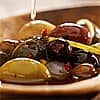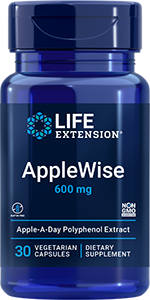- Science & Research
- Science News
- Newsletter
- 2012
- October 19

Newsletter
Newsletter
Vitamin C Supplementation Menopausal Bone Loss Prevention
Vitamin C supplementation shows potential for menopausal bone loss prevention
Friday, October 19, 2012. The online journal PLoS One published an article on October 8, 2012 which suggests a protective effect for vitamin C against bone loss associated with the decline in female hormones that occurs with aging. Mone Zaidi, MD and colleagues at Mount Sinai School of Medicine in New York tested the effects of vitamin C supplementation in mice that had their ovaries removed to mimic the hormonal changes associated with menopause. Another group of mice received sham surgeries. The animals were divided to receive five milligrams per day vitamin C or no supplementation for eight weeks. Bone mineral density was assessed before, during and after the treatment period, and bone samples were analyzed at the end of the study. At four and eight weeks, lumbar spine bone mineral density was found to have significantly decreased in ovariectomized mice compared to the controls, however, the decline was prevented in animals that received vitamin C. Evaluation of the tibia uncovered a significant protective effect for vitamin C at eight weeks, but not at four weeks. Bone analysis revealed a reduction in mineralizing surface, mineral apposition rate (the rate of addition of new layers of mineral) and bone formation rate in ovariectomized rats that was completely prevented in animals that received vitamin C. Supplemented ovariectomized and non-ovariectomized animals also experienced elevations in plasma osteocalcin, a marker of bone formation. "This study has profound public health implications, and is well worth exploring for its therapeutic potential in people," stated Dr Zaidi, who is a Professor of Medicine and Director of the Mount Sinai Bone Program. "The medical world has known for some time that low amounts of vitamin C can cause scurvy and brittle bones, and that higher vitamin C intake is associated with higher bone mass in humans. What this study shows is that large doses of vitamin C, when ingested orally by mice, actively stimulate bone formation to protect the skeleton. It does this by inducing osteoblasts, or premature bone cells, to differentiate into mature, mineralizing specialty cells." "Further research may discover that dietary supplements may help prevent osteoporosis in humans," he added. "If so, the findings could be ultimately useful to developing nations where osteoporosis is prevalent and standard medications are sparse and expensive." | ||||||||||||||||
 | ||||||||||||||||
| ||||||||||||||||
| ||||||||||||||||
 | ||||||||||||||||
| ||||||||||||||||
| ||||||||||||||||
The latest news on aging, nutrition, and vitamins
Lab
Testing
How Life Extension lab testing works











